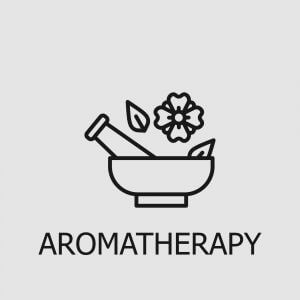Benefits of Aromatherapy in Addiction Recovery
One of the key components of addiction recovery is learning how to resist triggers and cope with the emotional and physical discomforts that used to drive us to drink and/or use. Holistic activities that promote harmony and balance between the mind and body, such as yoga, meditation, acupuncture, and music therapy, are excellent tools for this practice. So is aromatherapy, which involves the use of fragrant essential oils to help improve mood, calm cravings, and ease other symptoms associated with substance use disorder. Here’s a brief overview of how aromatherapy and addiction recovery.
What Is Aromatherapy?
Aromatherapy is a holistic practice that uses plant extracts to treat problems interfering with physical and emotional health. Essential oils are most frequently used and can either be inhaled with a diffuser or diluted with a carrier oil and applied to the skin. The belief is that the fragrances from the oils stimulate smell receptors in the nose that then activate the limbic system, which is the part of the brain that helps regulate emotion. When used carefully and as directed (these oils are highly concentrated and should never be ingested), they can provide benefits such as improved mood, mental clarity, and even relief from minor physical ailments such as stomach aches and nausea.
Aromatherapy & Addiction Recovery
There are many different types of essential oils and they all have different benefits. When it comes to addiction recovery, the most beneficial oils tend to be the ones that promote calmness and relaxation. For example, eucalyptus, ylang-ylang, and citrus oils such as orange, lemon, and grapefruit are known for their soothing abilities and are often used to ease stress and anxiety. Lavender oil is also known for its calming properties and is frequently used to help treat insomnia, which is common in early recovery.
Another issue frequently reported in early sobriety is confusion and brain fog, often as a result of post-acute withdrawal syndrome (PAWS). Essential oils like sage, rosemary, and ginger are often used to combat this problem as they can help sharpen concentration, focus, and mental clarity. Sandalwood and cedarwood oils are also known for boosting cognitive abilities by helping to quiet racing thoughts, promote mindfulness, and facilitate meditation.
Finally, there are essential oils that can help ease minor physical issues common during detox and early addiction recovery. Ginger and peppermint oils are frequently used to relieve digestive issues and stomach aches, for example, while rosemary and chamomile oils are known to relieve headaches and muscle and joint pain.
When combined with professional, evidence-based guidance and treatment, aromatherapy can be a helpful, holistic addition to an addiction recovery plan. For more information on how holistic treatments may benefit you, reach out to us today.
